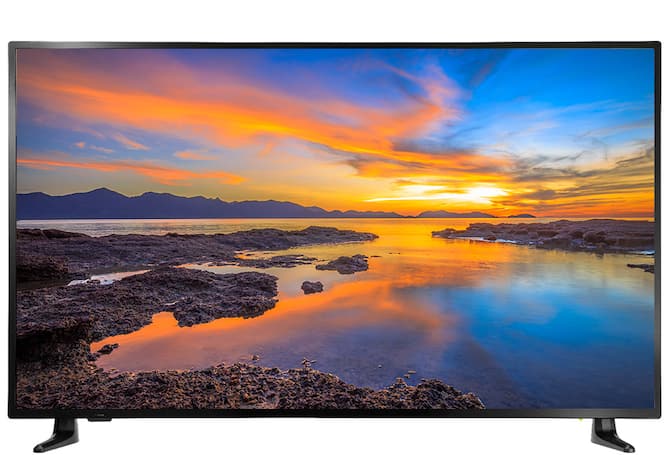No content
How to Choose the Best 4K TV: The Essential Guide

carousel
What to look for in a 4K TV
With stunning clarity, vibrant colors and lifelike detail, 4K TVs have enhanced how we enjoy entertainment. However, with a multitude of brands, sizes and features, choosing the best 4K TV can seem like a daunting task. To help you understand the differences in 4K TVs as well as the benefits of 4K, we have but together the essential 4K TV buying guide. Whether you’re a movie buff in pursuit of cinematic brilliance, a gamer craving immersive visuals or simply want a new TV to enjoy your favorite shows, let us guide you through your journey of choosing a 4K TV.
What is 4K?
4K, also known as ultra-high definition (UHD) and 4K Ultra HD, is a high-resolution video format that has four times the resolution of standard high-definition (HD) videos. Offering astonishingly sharp and clear picture quality, 4K TVs have more pixels, which results in incredibly detailed and colorful images. Here is a quick breakdown of resolutions:
- 1080p (Full HD). This resolution is 1920 x 1080, which equates to 2,073,600 total pixels. Full HD is a common resolution and was a benchmark for most broadcasts and streams until the rise of 4K technology.
- 4K (UHD). This resolution is 3840 x 2160, which is approximately 8 million total pixels. 4K TVs have become the new standard among newly manufactured TVs.
- 8K (8K UHD). This resolution is 7680 x 4320, which is more than 33 million total pixels. 8K technology is still developing, but 8K TVs are available for people who want to “future-proof” their entertainment setup as 8K content becomes more available.
What are the benefits of 4K TV?
4K TVs offer several benefits that enhance the viewing experience when compared to lower-resolution TVs, including:
- Higher resolution
- Enhanced clarity
- Improved color accuracy
- Supports high-dynamic range (HDR)
- Gaming performance
- Large screen capacity
What is 4K upscaling?
Additionally, 4K TVs also feature better upscaling than other TVs. If are wondering how 4K upscaling works, it’s actually an advanced algorithm that can convert lower-resolution content to 4K. This makes non-4K content look much better on a 4K TV.
What is 4K UHD TV?
4K UHD TVs offer smoother edges, finer details and more lifelike images compared to regular HD TVs. As aforementioned, 4K UHD technology has become the standard for modern televisions.
What is 4K LED TV?
Light-emitting diode (LED) technology is used for backlighting TV screens and monitors. Combining this LED backlighting with crisp 4K resolution, 4K LED TVs offer high-quality and captivating imagery, showcasing sharp detail and lively colors.
What is 4K QLED TV?
Enhancing the performance of LED technology, quantum dot light-emitting diode (QLED) incorporates tiny semiconductor nanocrystals that emit very precise colors when exposed to light. 4K QLED TVs use this quantum dot technology to improve brightness and color accuracy. Although they are available from a variety of manufacturers, Samsung is particularly known for its QLED TVs.
What is 4K mini-LED TV?
Unlike traditional LED backlighting, mini-LED technology uses a greater number of smaller LED backlighting zones. This results in improved contrast, better black levels and an enhanced HDR performance that offers a wide range of colors.
What is 4K OLED TV?
Similar to LED, organic light-emitting diode (OLED) technology produces a backlight. However, each individual pixel in a 4K OLED TV emits its own light, resulting in true blacks and infinite contrast ratios in addition to fast response times and vibrant, accurate colors.
How to choose a 4K TV
While UHD refers to the TV’s 4K resolution, the different backlighting technology garners slightly different results. If you prioritize picture quality in dark settings, an OLED TV’s black levels and viewing angles might be preferable. On the other hand, the high brightness provided by QLED technology is a better choice for well-lit rooms.
What is the best 4K TV size?
The ideal size for a 4K TV depends on various factors, including your room size, viewing distance, personal preferences and budget. You can sit closer to the TV without seeing pixelation or loss of detail with 4K content. This means that you can potentially put a larger 4K TV in smaller space without hindering the realism and detail of the 4K resolution. However, smaller 4K TVs might be the perfect fit for a bedroom or den.
What is a 4K smart TV?
A smart TV is equipped with integrated internet connectivity and built-in software that offers a wide range of interactive and online features that go beyond traditional TV viewing, making it a centralized hub for entertainment and information. 4K smart TVs combine smart technology with 4K 2160p resolution, letting you enjoy a wide variety of content on your favorite platforms without needing a separate 4K streaming media player. To get the best performance out of your smart 4K TV, be sure to check out how to set up your home network, ensuring you get a strong Wi-Fi signal for optimal streaming.
So, what is the best 4K TV?
After examining the differences between 4K UHD and OLED TV, as well as LED, mini-LED and QLED, you can see that every 4K TV offers an outstanding viewing experience. Whether you prefer basic 4K resolution or want to take things up a notch with advanced backlighting options, a 4K TV truly enhances the entertainment experience.